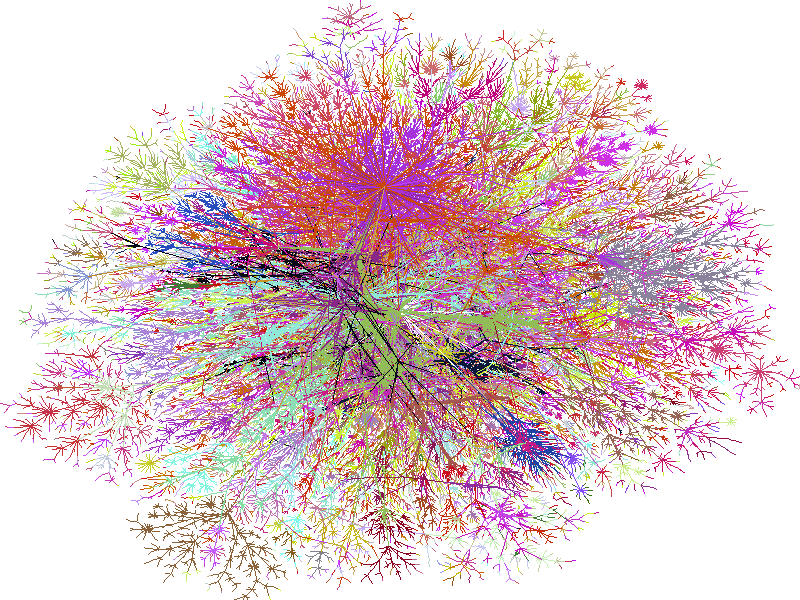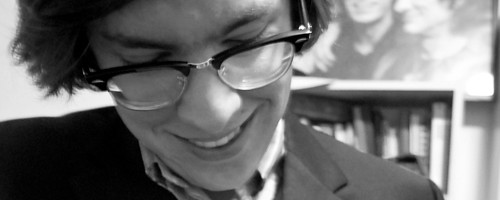Censorship and severe constraint have a substantial history in the crafting of new language and forms of self expression through the restriction it has provided speakers, writers, and communicators of language. From the way we speak in virtual worlds to the short hand that children use on the playground to avoid detention, restriction in the way society communicates is present in every culture and constantly manifests itself in different forms as new methods of censorship emerge. Many historical examples to modern censorship-dictated writing restriction exist, but two relevant forms created amongst victimized subcultures in history are the songs of the underground railroad and the hobo code.

The underground railroad, an informal network of secret routes and safe houses were created in the 19th century for african slaves that were brought to America as a way to escape to free states that were developing at this time, as well as to the aid of abolitionists and allies who shared a passion for the cause to bring these people to freedom. The underground railroad brought with it a new form of writing restriction that took the form of song. These songs used specially crafted lyrics in order to ensure that the path these slaves were escaping towards were safe routes. A famous example of one of these songs is “Follow the Drinking Gourd,” with lyrics including:
“The riverbank will make a very good road.
The dead trees show you the way,
Left foot, peg foot traveling on,
Following the drinking gourd.”
What if our culture today had to speak of forbidden topics in the form of song? What kind of lyrics would we write to convey our message?

Another famous form of writing restriction as a result of severe societal constraint is Hobo Code. Hobo code was created by hobos for hobos in order to cope with the difficulty of the lifestyle they were forced to lead. This code, often times written on cardboard with chalk or coal would provide fellow hobos specific directions, instructions, and, most importantly, warnings. These warnings included markings that suggest the wealth of an area, a safe camp site, a guard dog, and so on.
What if the affluent were forced to provide codes to signify messages about a space? What kind of icons would wealthy entrepreneurs craft to provide insight to the safety of an investment or business plan?
The dawn of the 90s brought with it the censorship of Internet communication, and a catalyst for a new form of writing within internet culture. Operation Sundevil, a nation-wide “witch hunt,” lead to three arrests, and the confiscation of equipment from numerous hackers and phreaks. Prior to this crackdown, these sub-cyber-cultures were never effected by law enforcement for their acts, and as a result, censorship and concerns over game forums + chat rooms unintentionally created a new method of writing-restriction, and written language. Leetspeak (1337), some believe, was developed as a way to defeat the numerous text filters that were being created by Internet Relay Chat system operators. These filters were meant to track down those using language that was considered inappropriate within game forums, such as conversation centered around hacking and cracking, and censor them.

Years later, internet security has gotten stronger, and hacking, while still an issue in cyber-culture, has taken a back seat to new issues at hand such as harassment, racism, and homophobia within game and internet based forums. Because of the rise of venues such as facebook as well as the substantial growth in the accessibility of the internet, the popularity of online games has welcomed a much larger crowd of over 1 billion people. This growth in popularity has welcomed new, interesting forms of writing restriction that go beyond the usual f******* censorship methods commonly implemented, such as asterisks. These forms of censorship, or new modes of internet communication, have resulted in new, more creative forms of insult within the gaming culture by means of restriction.
 Two modern iphone / ipad apps that utilize interesting techniques for restriction in communication between players are Mancala and Pokerist. In the online mode of Mancala, users can converse with one another, but are limited to a series of short phrases on a scroll wheel. These phrases include the following:
Two modern iphone / ipad apps that utilize interesting techniques for restriction in communication between players are Mancala and Pokerist. In the online mode of Mancala, users can converse with one another, but are limited to a series of short phrases on a scroll wheel. These phrases include the following:
Hello, Good Luck!, It’s your turn, Do you know how to count?! :), Stop capturing my beads!, I’ve got you now., Nice move!, Good Game, I didn’t even see that, I’ll be right back, You need an internet name, Goodbye, Why go on? Let me lie here., I love this game!, Next time I will have you, Thanks.
It is interesting to observe how these restrictions in what can be said in the context of this game between players can be used creatively to insult one another. For example, I have observed that if a player captures the opponents beads, they will insert “Thanks.”

Pokerist, like Mancala has an interesting form of writing restriction. One mode of communication between online players in this poker app is through the exchange of gifts. These gifts range greatly, from a roll of toilet paper and beer to a teddy bear and flower. It is interesting to observe how players interact with each other and attempt insult through the use of these items. For example, a good way of saying “you shit head!!,” I have noted, is by gifting the opponent a roll of toilet paper.
What would the world be like if the modes of restriction in these games were to exist in our “real” life? What few phrases or set of exchangeable gifts would be suitable for expressing ourselves in every day conversation?

Taking the conversation outside of gaming culture, and into virtual culture in general, there are two very relevant issues at hand as I type this blog post. The first of course being the recent shut down of internet communication throughout Egypt. This shut down is unlike any drastic measure we have seen in the history of internet communication, and has shown us a government’s fear of the power that virtual communication can have as a method of activism. Another example of similar censorship in virtual research and communication is the limit of search terms in China, most notably the inability to search in virtual worlds for the historic demonstrations that took place in Tiananmen Square.
Who decides what can be communicated and what cannot be communicated in virtual worlds? Why do we have a language that is more limited in virtual space than it is in physical space? Does free speech exist on the internet? What would the world be like if the lack of free speech on the internet was synonymous to that of our physical world? Can censorship be seen as a mere creative tool / obstacle for self expression?


























